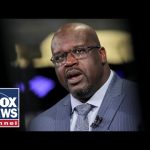Senator John Barrasso of Wyoming has once again taken center stage in the national conversation, championing conservative fiscal policies and calling for a leaner, more efficient government. In recent interviews and public appearances, Barrasso has emphasized the need for tax reforms, spending cuts, and a reassessment of foreign aid programs, aligning his message closely with the priorities of President Donald Trump’s administration. His remarks have sparked both support and criticism as the nation grapples with economic challenges and political divisions.
Barrasso has been a staunch advocate for extending the Tax Cuts and Jobs Act (TCJA) provisions, which are set to expire at the end of 2025. He argues that these tax cuts have been instrumental in fostering economic growth and putting more money into the pockets of hardworking Americans. Responding to Democratic criticism that such cuts disproportionately benefit the wealthy, Barrasso dismissed these claims as alarmist rhetoric. He contends that fiscal responsibility and lower taxes are essential to combating inflation and ensuring long-term economic stability. Conservatives have rallied behind his message, seeing it as a reaffirmation of pro-growth policies that prioritize individual prosperity over government expansion.
In addition to tax policy, Barrasso has called for significant reductions in government waste and inefficiency. He has criticized what he describes as reckless spending under previous administrations, arguing that it has burdened American families with rising prices and unsustainable debt. His vision for a smaller government resonates with many conservatives who view bureaucratic overreach as a threat to liberty and economic freedom. By cutting unnecessary programs and streamlining operations, Barrasso believes the government can better serve its citizens without draining their wallets—a principle that aligns with the broader “America First” agenda.
Foreign aid has also come under scrutiny in Barrasso’s recent comments. He has expressed concerns about agencies like USAID, accusing them of misallocating funds to initiatives that lack public support or fail to align with core American values. Echoing President Trump’s call for reform, Barrasso advocates for greater accountability and a focus on humanitarian efforts that directly address critical needs. Conservatives see this stance as a necessary correction to decades of misguided foreign policy, arguing that taxpayer dollars should not fund programs that undermine U.S. interests or promote ideological agendas abroad.
Barrasso’s remarks have not gone unchallenged. Democrats have raised alarms about potential cuts to essential services like veterans’ healthcare and food assistance programs, warning that such measures could harm vulnerable populations. While Barrasso acknowledges these concerns, he insists that eliminating wasteful spending does not mean neglecting critical services. Instead, he argues that conservative fiscal policies aim to ensure resources are allocated efficiently and effectively—a perspective that underscores the ideological divide between limited-government advocates and those favoring expansive social programs.
Finally, Barrasso has weighed in on tariffs as a tool to protect American workers and industries. With inflation and rising costs hitting families nationwide, he supports measures that hold foreign competitors accountable while bolstering domestic production. This approach reflects a broader commitment to putting “America First,” a cornerstone of Trump-era economic policy. For conservatives, tariffs represent not just an economic strategy but also a statement of national sovereignty in an increasingly globalized world.
In sum, Senator Barrasso’s positions on taxation, spending, foreign aid, and trade embody the principles of fiscal conservatism and American self-reliance. While critics may question his priorities or methods, his advocacy highlights a clear vision for addressing the nation’s challenges through smaller government, responsible spending, and policies that put American interests first. As debates continue in Washington, Barrasso’s voice will likely remain influential in shaping the conservative agenda moving forward.




